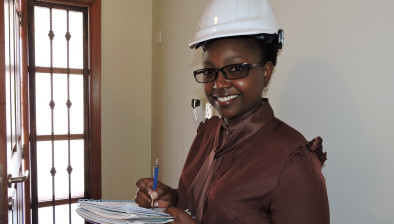Gender parity in construction sector ‘still 200 years away’
It will take nearly 200 years before gender equality is achieved in the construction industry, according to analysis from the GMB union.

Figures revealed at GMB’s annual Congress in Brighton today shows at the current rate of growth, the number of women in construction will equal men by the year 2194.
GMB has arranged a summit with the major construction companies working in the £18 billion Hinkley Point C project to discuss the lack of women in construction.
GMB will meet Hinkley bosses and contractor Doosan Babcock to discuss ways to recruit more women on the construction of the huge nuclear reactor.
Data from the Office for National Statistics (ONS) shows that just one in eight construction workers are female – the lowest share of any broad industrial group.
There are an estimated 60,972 more women in the construction industry than there were in 2009 – but as a proportion of the overall workforce the female share of the labour force increased by just 2.1%.
At this rate, it would take almost two hundred years before there was gender equality in the industry.
Jude Brimble, GMB national secretary, said: “Our analysis is a sobering reminder of the scale of the challenge facing the industry.
“As a union we are committed to advancing the cause of gender equality in all industries.
“That’s why we have arranged our ground-breaking Hinkley Point summit where we will discuss with the major players how to increase the number of women in the construction of the project.”
Nigel Cann, Hinkley Point C delivery director, said: “At Hinkley Point C, we aim to create an environment which supports more diverse and inclusive teams and to increase the number of women in the construction phase and beyond.
“We want to support more women entering the industry and to encourage progression of those who are already working with us. Success in this area is already being seen within EDF Energy’s apprenticeships where almost 40% of the current cohort are female – a substantial improvement against industry averages.
Andy Colquhoun, Doosan Babcock CEO, added: “Historically the engineering construction industry in the UK has been male dominated; Doosan Babcock’s drive in relation to diversity and inclusion in the workplace is a core element of our education, attraction and recruitment programmes.
“Increasing awareness and creating routes for women to enter the industry and contribute to a project such as HPC is not only the smart thing to do but also morally right. The Hinkley Point C project allows us to progress this further in partnership with our client EDF and with our Trade Union partners.”













